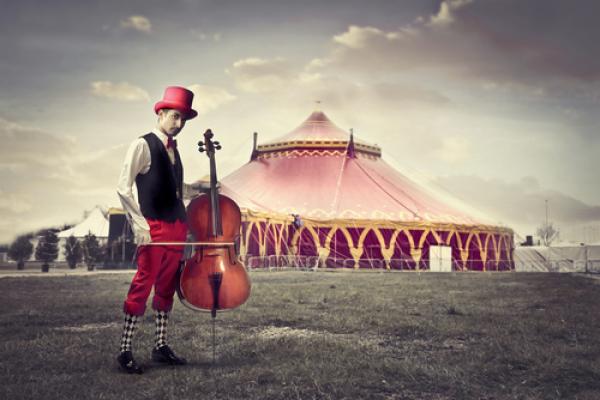Near the turn of the 2nd century A.D., the poet Juvenal published a collection of verses titled Satires. Among other things, the text was intended to spark discussion about social norms at a time when the masses were increasingly withdrawn from civil engagement.
In specifics, Juvenal wrote:
…everything now restrains itself and anxiously hopes for just two things: bread and circuses.
According to Juvenal, the public of his day and age was growing less concerned about social responsibility due to personal pursuits of bread (comfort) and circus (entertainment). In addition, he believed political leaders used the distribution of comfort and entertainment as a way to sedate the population, distract them, and open opportunities for systemic manipulation.
Juvenal believed far too many citizens were far too willing to cooperate in their own exploitation.
What I find incredibly intriguing — and disconcerting — about Juvenal’s observations is that, numerous generations later, it can be argued that much of what he considered to be problematic in his era can now be found in North America.
For example: How many North Americans focus their time and resources primarily upon the pursuits of comfort and entertainment? How many citizens disengage from public responsibility in order to seek personal pleasures? How does the addiction of comfort and entertainment — found so prevalently in North America — distance us from God’s dream for the world?
Naturally, there is nothing inherently wrong and/or immoral with comfort and entertainment. The enjoyment of “bread” and “circus” is God’s gracious gift, for such moments provide rest, relaxation, and a joyful break from tensions and anxieties. When our daily lives include arguments, concerns, pressures, and nervousness, a bit of comfort and entertainment indeed is worthwhile.
Nevertheless, like most anything in life, when something meant for good is used, pursued, and/or abused to excess, such overindulgence often leads to great harm — to ourselves, as well as to those around us. Comfort and entertainment are meant to serve as momentary retreats and/or releases from social engagement, yet we miss the mark when they become permanent replacements.
I wonder what would happen if we North Americans allowed ourselves to be more uncomfortable and less entertained? In other words, what would happen if faithfulness and participation in God’s mission of reconciliation, transformation, and empowerment replaced the personal pursuits of bread and circus as the primary goals of our existence?
How would such an alteration of priorities affect our lives? How would it shape our local and global communities? How would it energize the life of Christian Churches and spark our theological imaginations?
Rather than placing our hopes and dreams in the never-ending and unsustainable pursuit of bread and circus, how would our personal and public wellness be transformed by Christ-like love, dignity, and compassion at the center of our beings?
While various currents of North American life try to seduce us into a rhythm of bread and circus, the consequences — indifference and ignorance — in turn morph our communities into places of injustice and inequality. And so, in lieu of “anxiously hoping” for bread and circus, as Juvenal lamented so many years ago, we should remember that following Jesus leads to times, places, and people where comfort and entertainment are not immediately present.
Rather than contributing toward the exploitation of others (and ourselves), people of faith are called to engage with the difficult realms of public life. In response to God’s gracious love, we are named as agents of love and compassion, to be immersed in the civic pursuit of dignity and hope, and imbedded as advocates of peace for all people throughout the world.
Such efforts are neither comfortable, nor entertaining, but they are the true marks of faithfulness.
Brian E. Konkol is an ordained pastor of the Evangelical Lutheran Church in America (ELCA), and PhD candidate in Theology & Development with the University of KwaZulu-Natal (South Africa).
Image: olly/shutterstock.
Got something to say about what you're reading? We value your feedback!
